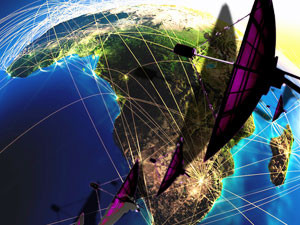
The GSM Association (GSMA) has called on governments in Sub-Saharan Africa to review their approach to the increasing tax burden imposed on the mobile industry.
The association, which represents the interests of mobile operators across the globe, released two studies exploring various aspects of mobile-specific taxation in Africa. The research notes the burden is "stifling economic growth in those countries that have introduced mobile-specific taxation".
The first report, "Surtax on International Incoming Traffic (SIIT) in Africa", examines the impact of SIIT in Sub-Saharan Africa and concludes its introduction can lead to less revenue for mobile operators and governments, and higher prices for consumers.
The second report, "Sub-Saharan Africa Universal Service Fund (USF) Study", found most of these funds are not succeeding in delivering their stated goal of widening access to telecommunication services and that alternative market-based solutions are more effective.
The GSMA's report summary states it expects greater USF fund transparency in SA, which is one of the countries identified as having poor or ineffective administration of such funds.
Tom Phillips, chief regulatory officer at the GSMA, says: "Sub-Saharan Africa is the fastest-growing region globally, with 328 million unique mobile subscribers and an annual growth rate of 18% over the last five years. However, with subscriber penetration of just 37%, there is clearly still huge potential for greater growth ahead."
Phillips adds the region is starting to see an "explosion" in mobile data uptake, but some governments' focus on generating revenue through increasing the SIIT and USF levies will have a negative impact on the domestic mobile sector and other businesses in the region.
Problem areas
In outlining some of the pitfalls for governments imposing SIIT, the GSMA splits the negative impact summary according to three main sub-categories:
* Consumers: SIIT effectively fixes prices for international traffic termination, and in these countries where it is imposed, it has caused the price of terminating international incoming calls to increase by an average 97%, with an increase of up to 247% in Burundi.
* Governments: SIIT has already shown its potential to create economic losses to governments that impose it. The report estimates that, in the absence of the SIIT, mobile operators could have terminated an extra 1.2 billion international minutes, generating $86 million (R921 million) in revenue from June 2010 to March 2014, indicating governments could have gained an extra $27.5 million (R294 million) across the period had the SIIT not been introduced.
* Businesses: SIIT creates significant extra costs to African businesses that trade with, and therefore call, businesses in countries where the SIIT has been imposed, negatively affecting regional integration. Evidence from mobile operators indicates that nearly 40% of all international incoming traffic is from countries in the region, and in some countries, such as Tanzania, over 50% of calls originate within Africa.
Share